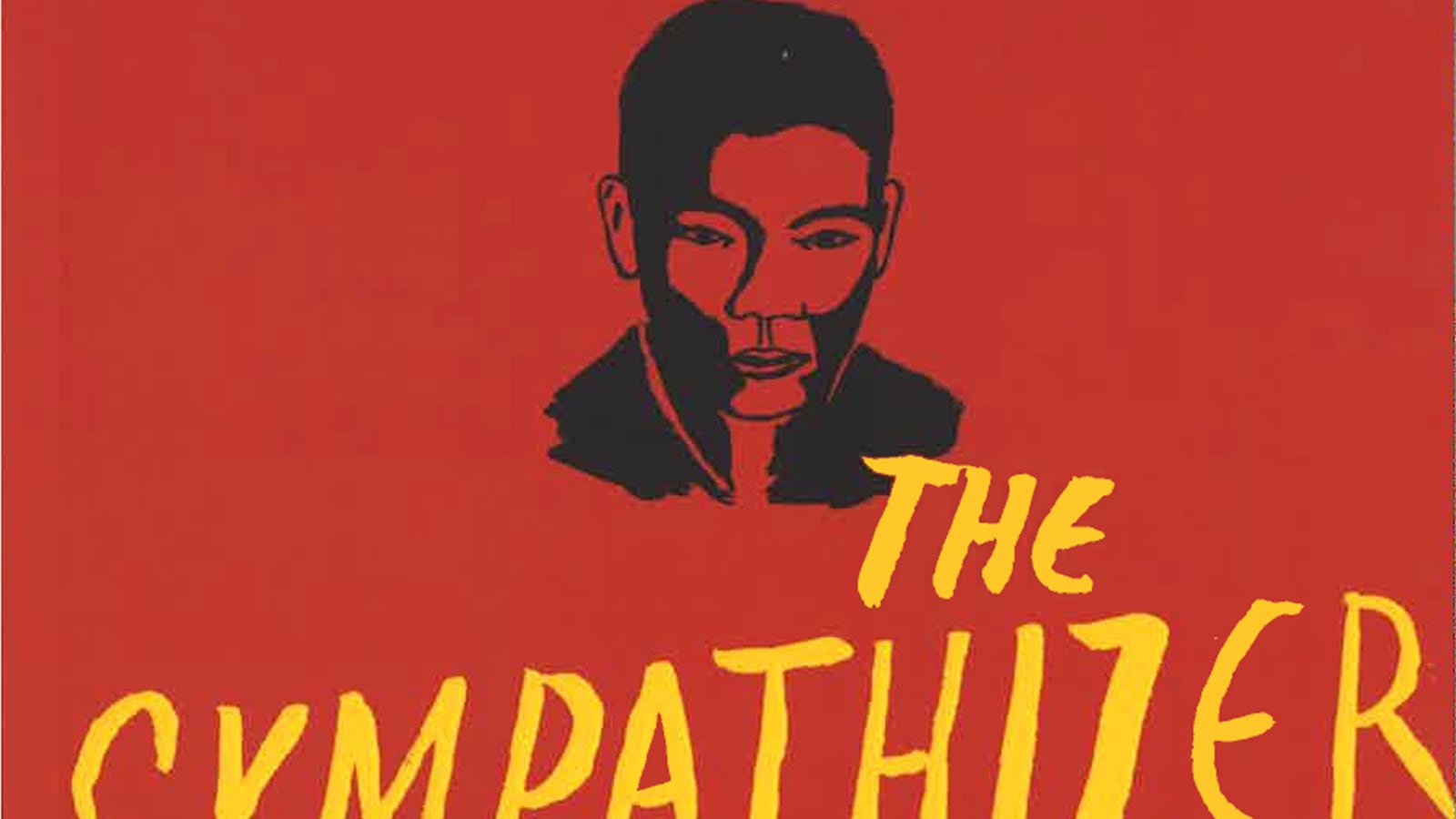A war novel, written any time after our re-evaluation of the phenomenon that began around the end of the American Civil War, will by its nature include certain unifying elements plucked from the grab-bag of heady themes—the blinding effects of systemic hubris, the absurdity of violence, the madness of man’s darkest natures unleashed, etc. In the case of the Vietnam War, the proceedings will also include, if one is inclined to view history as the story of winners and losers, the bilious extra baggage of defeat.
The equation gets even trickier in Viet Thanh Nguyen’s stunning debut, The Sympathizer, given the kaleidoscopic viewpoint of the unnamed narrator.
“I am a spy,” he writes, “A sleeper, a spook, a man of two faces.” The son of a Vietnamese woman and a French colonist Catholic priest, he is a communist sleeper agent, educated in western schools, who returns to his homeland to infiltrate the retinue of a South Vietnamese general in the closing days of the war. After the fall of Saigon, which happened, coincidentally, 40 years ago this week and which is presented in the book’s opening pages with riveting detail, he goes even deeper into the heart of the capitalist enemy, evacuated with the general and a handful of other refugees to California. From this new observation point, he is able to send secret dispatches back to one of his comrades, named Man, detailing the largely pathetic and unrealistic revanchism of the emasculated former warriors. As Man explains to him before they part ways, “Keep in mind that you will not be just any mole … but the mole that is the beauty spot on the nose of power itself.”

Soon, he is enlisted by a slick and dismissive Hollywood director to serve as a kind of historical consultant on a film depicting the heroic, quixotic attempts of a platoon of John Wayne-ish Americans to liberate a group of voiceless Vietnamese villagers (silent except for their screams) from the diabolical Viet Cong, “white men saving good yellow people from bad yellow people,” as the narrator describes it. “I pitied the French for their naïveté in believing they had to visit a country in order to exploit it. Hollywood was much more efficient, imagining the countries it wanted to exploit.”
Later, after finding time to lend a hand in the murder of two refugees that the general suspects of communist sympathies, he returns to Southeast Asia once more, this time with a group of former ARVN determined to mount one last suicidal action against the communists via a motley “invasion” through Thailand and Cambodia. It is during this ill-fated operation that the narrator, referred to hereafter as “the patient,” is captured by his erstwhile communist allies and subjected to brutal reeducation to purge him of the hedonistic and counter-revolutionary contaminants that he must have picked up during his time in the West. The entire book, in fact, is a written confession, addressed to the commandant of the prison camp in which the narrator is interned.
It’s at this point, during this long final section in which the patient’s id, ego, and super ego are slowly sand-blasted away through sensory deprivation and other forms of torture in order to get him to remember a horrible secret that his confession had so far omitted, that the reader is given to pause and ask himself: how did a novel that began as a realist examination of the folly of war, pure Quiet American (the narrator had in fact written his college thesis on Graham Greene’s classic), become a Kafkaesque nightmare-scape of the mind, the focus sweeping in from the conflict between geopolitical ideologies to the conflict between memory and consciousness? Could it be that Nguyen has captured the shape of the devolution of war itself, from grand ambition to human ruin? Or perhaps, the degradation of the sprit of revolutionary freedom into the impulse to murder a journalist?
Digressions abound, and the book is perhaps 50 pages too long (although most books are), but few of these flights of Nguyen’s fancy will be objected to, given the muscularity of his prose, the darkness of his humor, and the worldliness of his concern. In one particularly memorable and hilarious, if extraneous, section, the narrator recounts with guilt the Portnoy treatment that he gave an uncooked squid in his adolescence. A love affair that he embarks on with a Japanese-American woman is likewise a vehicle more for humor than for plot.
Communism, a wise man once said, is just a red herring. The Sympathizer is, to be sure, one of the finest novels of the Vietnam War published in recent years, especially given that it’s one of the very few written from a Vietnamese perspective. But the war is used here to highlight a panoply of other human realties that can’t be pinned to a moment in history—among them the limits of hope, the failure of friendship, and the psychological spaces that exist too deep in the human heart for politics to touch.






